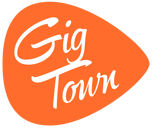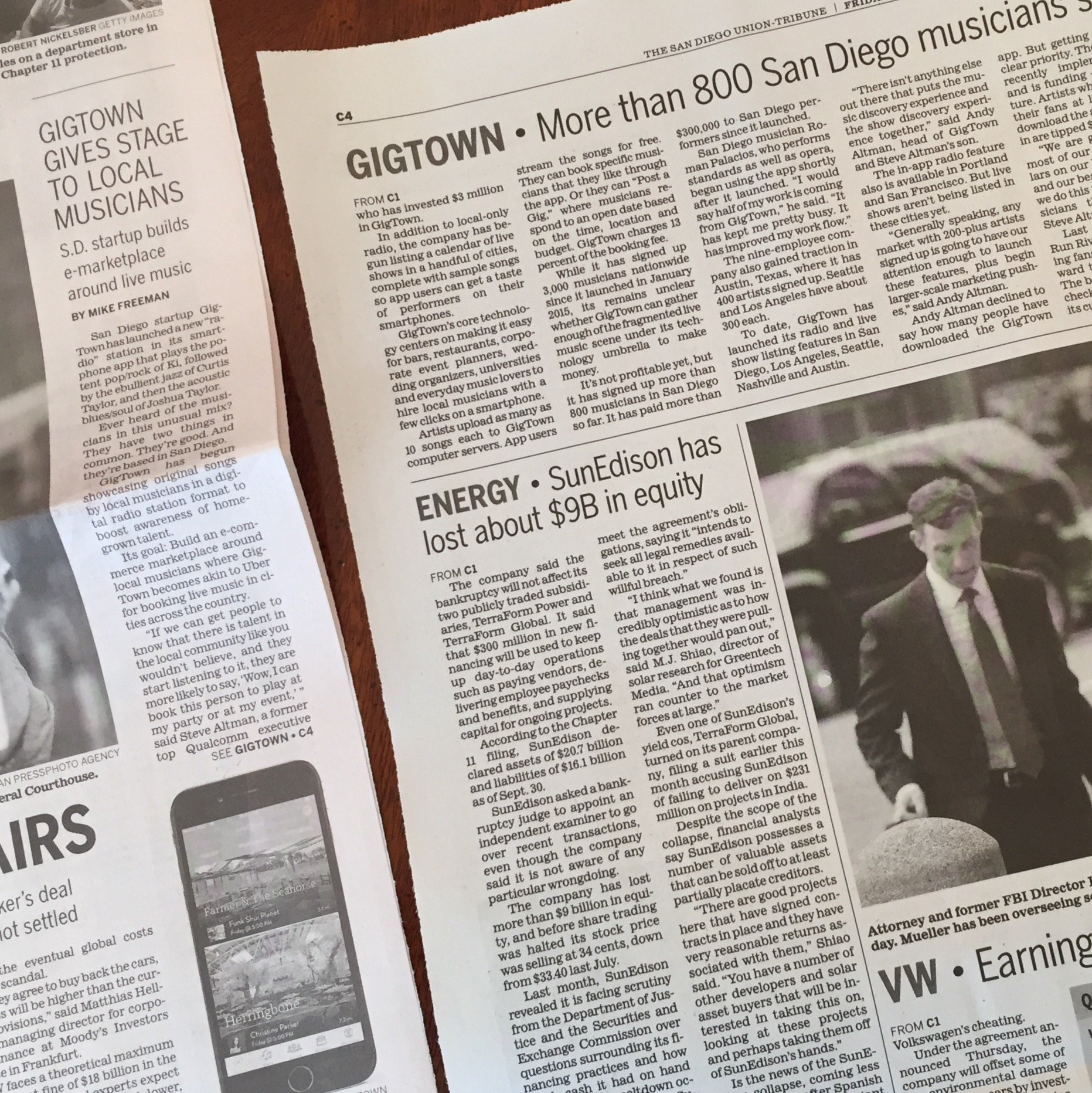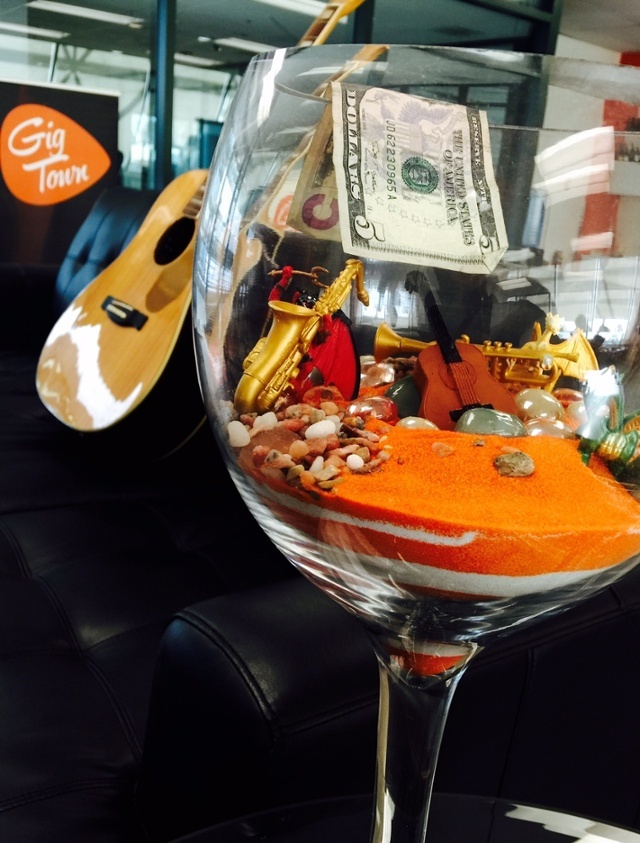The Huffington Post recently shone a spotlight on GigTown, highlighting us as a company that's running with an Uber-like business model!
Since day one, we've constantly kept an eye on how to improve and grow the family that's formed around this little idea of ours and this article emphasizes just how much everyone the GigTown community – fans, artists, venues, events, and more – has supported one another to help transform GigTown everything it can be. Take a look at just how far things have come and know that there's still many more exciting things planned for the future!
Meet GigTown, The Uber For Local Music
by George Beall
For restaurants and bars, one of the most overly complicated tasks is booking local music.
These venues want to bring in the most appealing musicians, but often find themselves lost in trying to find the right artist.
GigTown, a startup based in San Diego, makes booking a musician, vocalist, or DJ easy. With the recent launch of their web app, users can simply login to GigTown’s website and book a artist for their next event.
For artists in the GigTown database, this streamlines the process of finding new gigs. Before GigTown, artists would have trouble finding venues to play at and have difficulty organizing all the details.
Since their launch in early 2015, artists have secured more than $500,000 in paid bookings through the app, making GigTown a go to resource for any local musician. To get started on the app as an artist, you can simply start by creating a account and profile.
You’ll then be able to submit yourself to be considered for show opportunities on the site, or through a booker where one-off party and event throwers can contact you.
The rise of this on-demand business model made popular by Uber has become common across many industries. The key to these types of businesses lies in a push/pull situation where you need to have the demand be on par with the supply.
For GigTown, this means finding a balance of venues and artists. If there are too many venues, the demand for artists will become too high on the app.
As they expand nationwide, this balance will be hard to maintain as demand rises. With that said, the local music scenes have a strong network effect and good artists tend to be connected to others.
In addition, GigTown has been finding innovative ways to draw the attention of larger crowds. Recently, GigTown partnered up with Kaboo, a thriving music festival held every year at the Del Mar fairgrounds where nearly 10,000 people go to listen to live music.
At the festival this year, GigTown co-hosted the “Discovery Tour,” which allowed local artists to show off their talents in hopes of becoming a part of this extensive lineup.
Andy Altman, the founder of GigTown, came up with the idea after pondering how to apply an Uber-like business model to music.
His family hosts a Rock the Cure fundraiser for diabetes research each year and booking artists had always been a pain. GigTown solved a problem he was experiencing firsthand.
The app makes money based off a booking commission of thirteen percent. This enables artists and restaurants to focus the actual event while GigTown handles the payment from the venue to the artist.
Another neat aspect of the app is their check in feature that enables artists to get paid for audience check ins. If members of the audience check in to a show through the app, GigTown pays artists $10 per new user.
For a show of just fifty people at a local venue, that could easily to amount to $500 if all members of the audience are new GigTown users.
This innovative marketing strategy has enabled GigTown to growth hack their way into larger audiences, as crowds are incentivized by artists to download the app and check in to their shows.
Though the company is still young, it has made impressive strides since it’s launch. If you’re looking for a artist to book for your next event, it’s time to check out GigTown.
Originally posted via The Huffington Post on 1 November 2016.



